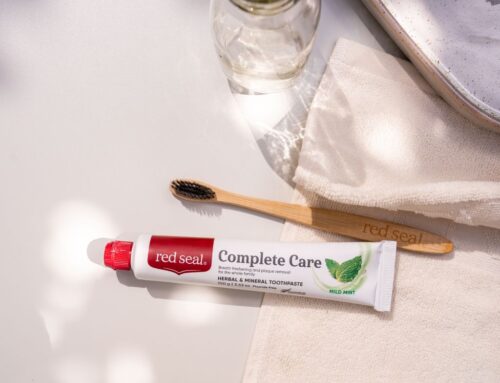Your mum’s good for more than just TLC and relationship advice. She’s a valuable source of information that could keep you healthy and even save your life.
Many diseases have a genetic basis and tend to run in families. The more you know about your extended family’s health – who had what disease, how old they were when they died etc. – the better you and your doctors are able to assess individual risk.
If, for example, there’s a strong family history of breast cancer, you may have inherited a predisposition to the disease, but you may be unaware of it unless you’re up-to-date with your family health tree. And this is where your parents come in handy. Forewarned is forearmed.
Find out more about your health risks by asking the following questions:
1. Is there a family history of cardiovascular disease?
Odds are that the answer to this is yes. Family history is a major risk factor for cardiovascular disease; others include high blood pressure, high cholesterol, smoking, inactivity and being overweight. “Ask your parents how many members of your family had heart problems, and how old they were when they had them (since the forms of heart disease that run in families tends to strike younger). It’s important to know as the heart is implicated in lots of disorders, not just heart attacks,” says genetics counsellor Bronwyn Butler.
2. Is there a family history of high blood pressure?
Your genetic make-up may influence your susceptibility to high blood pressure or hypertension, an insidious condition with few warning signs. Younger adults should have their blood pressure checked every two years and annually over the age of 50. But, if you have a family history of cardiovascular problems, be sure to check yours more often. Overindulgence in alcohol, smoking, a high-salt diet and being overweight are other contributing factors – a 10 per cent reduction of body weight can lower your risk and even reduce hypertension that’s already there.
3. Is there a family history of diabetes?
This common disease can be a killer, and a genetic predisposition is implicated in its development, which may also be triggered by lifestyle factors such as obesity. So, if you’ve inherited a predisposition to the disease, maintaining a healthy weight and exercising may delay its development – possibly forever. A 10 per cent reduction of body weight can lower your risk for this disease as well, and can lower your blood glucose levels if you’ve already been diagnosed with diabetes.
4. Is there a family history of breast cancer?
A family history of carrying the genes implicated in breast cancer, BRCA1 and BRCA2 (BRCA1 is also implicated in the development of ovarian cancer), increases your risk, particularly if breast cancer struck your family member at an early age, or if any relatives had both forms. Having said that, it’s important to realise that the majority of cases of breast cancer are “sporadic” (arising from other causes, not inherited genes). But even sporadic cancers tend to cluster in families. Obesity, postponed pregnancy, choosing not to breastfeed and overindulgence in alcohol increase risk for breast cancer, so your best protection is early detection. Do a self-examination every month and be sure to undergo a clinical breast examination every year over the age of 40.
5. Is there a family history of melanoma?
There seems to be an inherited predisposition to this disease, but exposure to the sun is a prime trigger factor. Ask your mum about melanoma in your family, but always protect yourself with big hats, long-sleeved opaque shirts, an SPF 50 (or more) broad-spectrum sunscreen and sunglasses.
6. Is there a family history of osteoporosis?
The risk of osteoporosis (weakening of the bones due to leaching of calcium) rises after menopause. Regular weight-bearing exercise (such as brisk walking) helps, as does a diet rich in calcium. “Osteoporosis definitely runs in families, so get in early with exercise to help strengthen your bones,” says Butler. “Smoking must also be avoided.”
7. Is there a family history of Alzheimer’s disease?
Having a first-degree relative (parent, sibling, child) with Alzheimer’s Disease may mean you’re at increased risk of getting it yourself. Although it’s incurable, new treatments are becoming available. In some cases, genetic testing may even be possible.






I have good knowledge of my families health history but unfortunately for my daughter, her dad is lacking in that knowledge (he doesn’t even know basic things like wether he was immunized). His mum isn’t exactly a fountain of knowledge and he never knew his father, so with our daughter we just have to hope that my side of things is enough.
I ended up having this conversation with my mum when I first got pregnant. It’s all those questions that come up on the medical forms, and I just didn’t really know. Yet, I knew my friends had huge knowledge of that stuff from their own mums!
I knew having that family history might increase my risks and also meant certain tests had to be considered. It was really eye opening. As far as I knew prior to that, there wasn’t much to tell! After the conversation I found out things, medical history not just of the family but myself as a child as well that I wasn’t aware of. It really does pay to ask mum!
I feel I have a fair bit of knowledge in regards to our family history. We have a large amount of bowel cancer in the family so something I am vigilant about checking.
These are all really important questions! My mum was a nurse before she retired so we are very open to medical discussions, and my grandmother is still going strong at 96 so that’s great!
Very good questions! We have a family history of breast cancer sadly, so as soon as I turned 45 I had a mammogram and I also get smears regularly – can’t stress how important they are!! But a very important discussion to have with Mum or another female family member 🙂
So true! Im glad my mum was very vocal boutiques our families health history as there seems to be a common issue with cervical and breast cancers for our woman, but sadly as mum was a single mum I have no idea about my Dad’s side which can be abit worrying esp when I learnt recently I had a rare blood type and it’s my Dad’s rather than my Mums so I make sure I keep my kids in the know about every health issue that may pop up in conversation etc